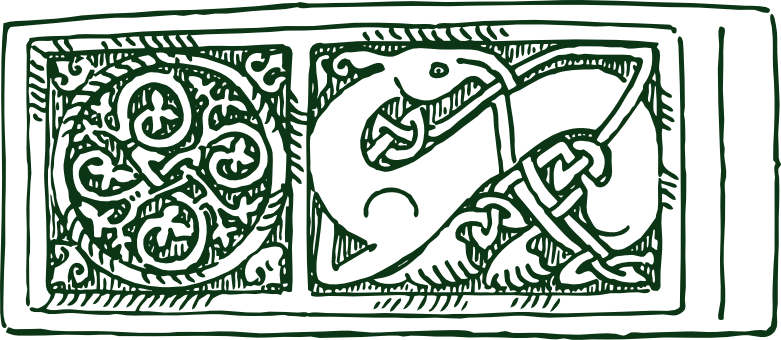Dr Valentina Bold (Director, Solway Centre for Environment and Culture, University of Glasgow, Dumfries)
The James Williams lecture was given on 4 December 2015 by Dr Valentina Bold, Director of the Solway Centre for Environment and Culture at the University of Glasgow, Dumfries.
Her topic was Father of the Society: Frank Miller FSA. She described him as a quiet, unassuming man but one who was a great scholar and well regarded by prominent people in his field.
He had joined the Dumfriesshire and Galloway Natural History and Antiquarian Society in 1886 and was President from 1929–1930. After his death in 1944, the obituary published in the Transactions described him as ‘Father of the Society’, not a founding father, but more reflecting the esteem he was held in, his long membership and role in helping to shape the way the Society developed.
He was proud to be an antiquarian and was also a Fellow of the Society of Antiquaries of Scotland. In addition he founded and for fifty years was secretary of the Annan Literary Society. He was Honorary Secretary of and a frequent speaker at the Mechanics Institute in Annan which supported reading being accessible for all. He was a very religious man and was heavily involved with the church in Annan.
Frank Miller was interested in many things, including history and archaeology, but his main interest was ballads and the collection of traditional Scottish songs. He is best known for his book The Poets of Dumfriesshire published in 1910, which was regarded as pioneering, bringing together as it did different kinds of literary materials all related to his chosen area of study. He also made numerous contributions to the Society’s Transactions, published poetry, edited poetry and wrote songs himself.
He was a member of the small scholarly band who helped the American Professor Francis James Child produce his best known work The English and Scottish Popular Ballads. He corresponded widely with other ballad experts and this resulted in a long friendship with William Macmath, originally from our area, who worked as a solicitor in Edinburgh.
Dr Bold gave some background information on Frank Miller. He was born in Tillicoultry in Clackmannanshire in 1854 into a fairly well-off family involved in the wool-milling industry. They moved to Alloa and then after the death of his father in 1858, his mother and the three children moved to Helensburgh to live with his father’s sister Janet. His mother married again within three years to a man from Lanark and the family expanded. Frank suffered from ill health as a child and despite a good education did not go on to university. He was intended for the ministry but it was decided he was not robust enough for this life so in 1871 he was back in Tillicoultry working as a bank clerk. He later moved to Annan working as an accountant in the Commercial Bank of Scotland until he retired.
He took great joy in scholarship and his holidays were spent researching in the British Museum, the National Library of Scotland and the Society of Antiquaries Library.
Dr Bold speculated on the influence that various members of his family may have had on the young Frank. His maternal grandfather had written A History of Merchant Shipping and a cousin wrote about the history of Arbroath and its Abbey. The greatest influence however was thought to be William Motherwell, related to Frank’s grandmother, who was an eminent scholar on minstrelsy ancient and modern and who had gifted copies of his book to her which the young Frank had probably seen. It is known that Miller was very proud of, and wrote about, his relationship to Motherwell
Frank Miller bequeathed his library, bookcase and papers to our Society. This is now in the Ewart Library and is known as the Miller Collection, comprising rare books along with his own papers and correspondence.
Dr Bold finished by saying that Frank Miller, with his great eye for detail, had made a huge contribution to scholarship and that his work deserved to be recognised. She wondered if his modesty and unassuming nature had led to its neglect and made a plea for further investigation of the man himself and the contents of the Miller Collection.
